Meat: The Full Guide to Vacuum Sealing and Storage
Posted by Avid Armor on Aug 23rd 2024
When it comes to preserving the freshness and quality of meat, vacuum sealing is a game-changer. Whether you're stocking up on your favorite cuts or simply looking to extend the shelf life of your purchases, understanding the best practices for vacuum sealing meat can save you time, money, and waste. In this guide, we'll cover everything from selecting the best meats to vacuum seal, storage durations, and tips for buying in bulk to comparing different storage methods.
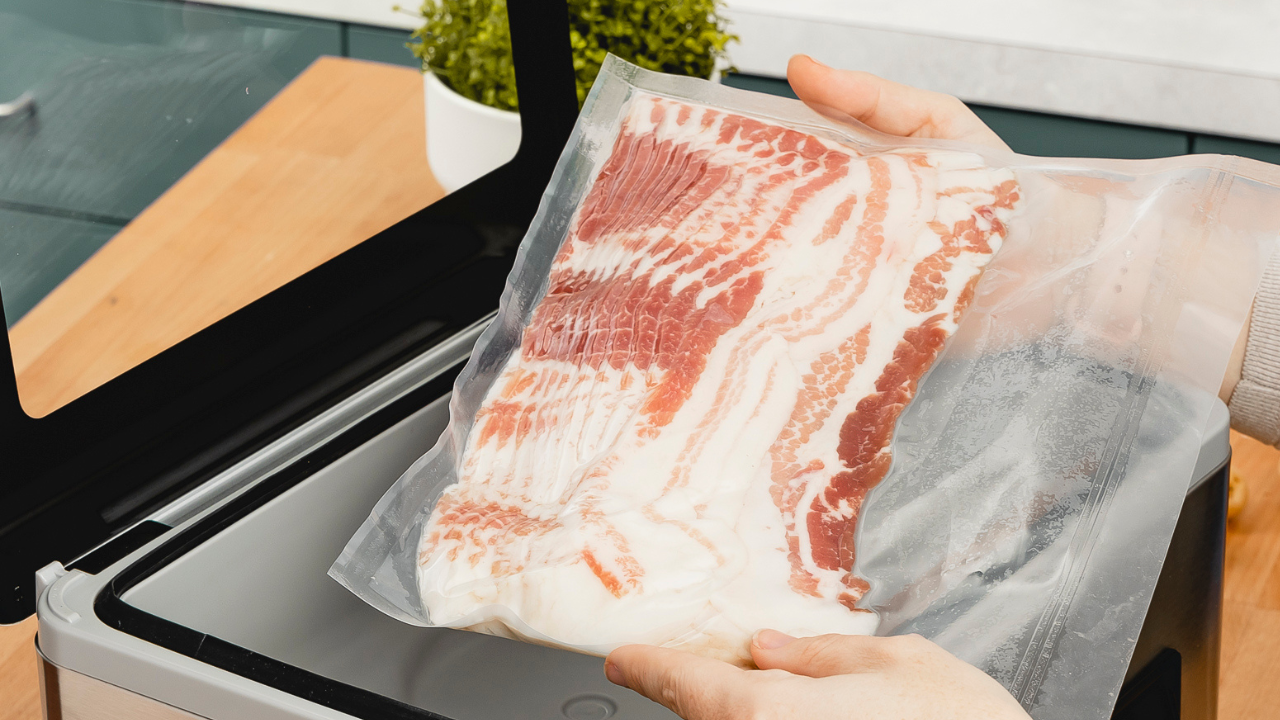
Why Vacuum Seal Meat?
Vacuum sealing removes air from packaging, drastically slowing down the process of oxidation and the growth of bacteria and mold. This not only keeps your meat fresher for longer but also preserves its flavor, texture, and nutritional value. Compared to traditional storage methods like butcher paper or plastic bags, vacuum sealing offers the longest shelf life and best protection against freezer burn.
Best Practices for Vacuum Sealing Different Types of Meat
Different types of meat require slightly different approaches when vacuum sealing. Here's a breakdown:
1. Beef
- Best Cuts: Steaks, roasts, ground beef, and stew meat.
- Storage Duration: Vacuum-sealed beef can be stored in the freezer for up to 2-3 years without losing quality. Refrigerated vacuum-sealed beef can last up to 2 weeks.
- Tips: For ground beef, it's best to pre-freeze it for about 1-2 hours before vacuum sealing to prevent it from being compressed too much, which can affect the texture.
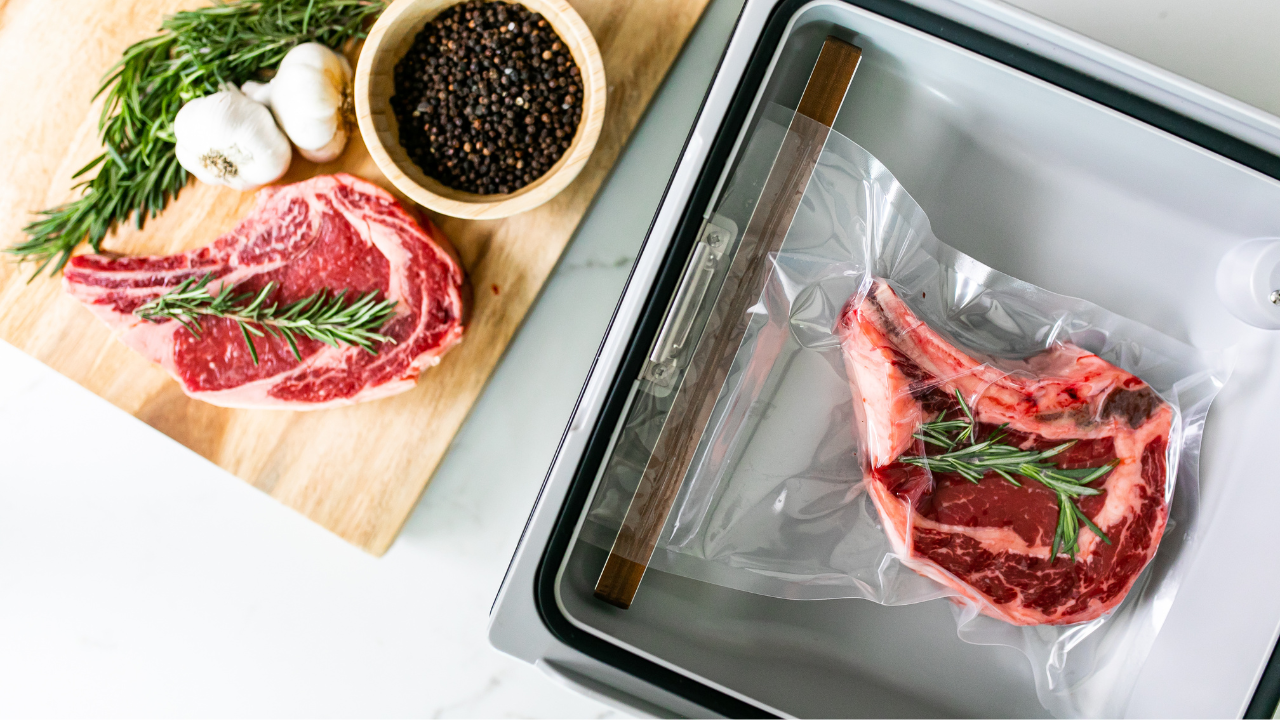
2. Poultry
- Best Cuts: Chicken breasts, thighs, wings, whole chickens, and turkey.
- Storage Duration: Vacuum-sealed poultry can be stored in the freezer for 1-2 years. In the refrigerator, it can last up to 1 week.
- Tips: Poultry can release a lot of juices during vacuum sealing, so consider pre-freezing or using a paper towel in the bag to absorb excess moisture. If you use a chamber vacuum sealer, you don't have to worry about this as much since the gentle pressure won't force liquids out of the meat.
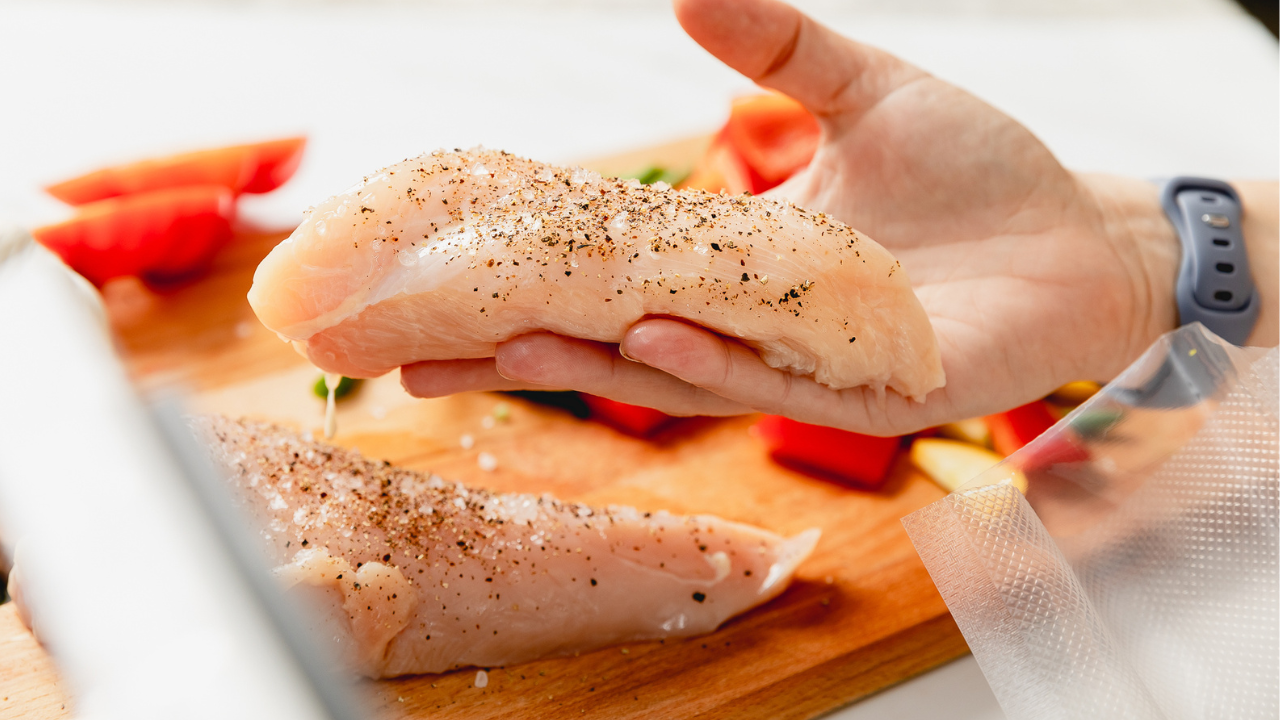
3. Pork
- Best Cuts: Pork chops, roasts, ribs, and ground pork.
- Storage Duration: Vacuum-sealed pork can last in the freezer for 1.5-2 years and in the refrigerator for up to 2 weeks.
- Tips: Like beef, ground pork should be pre-frozen before sealing to maintain texture.
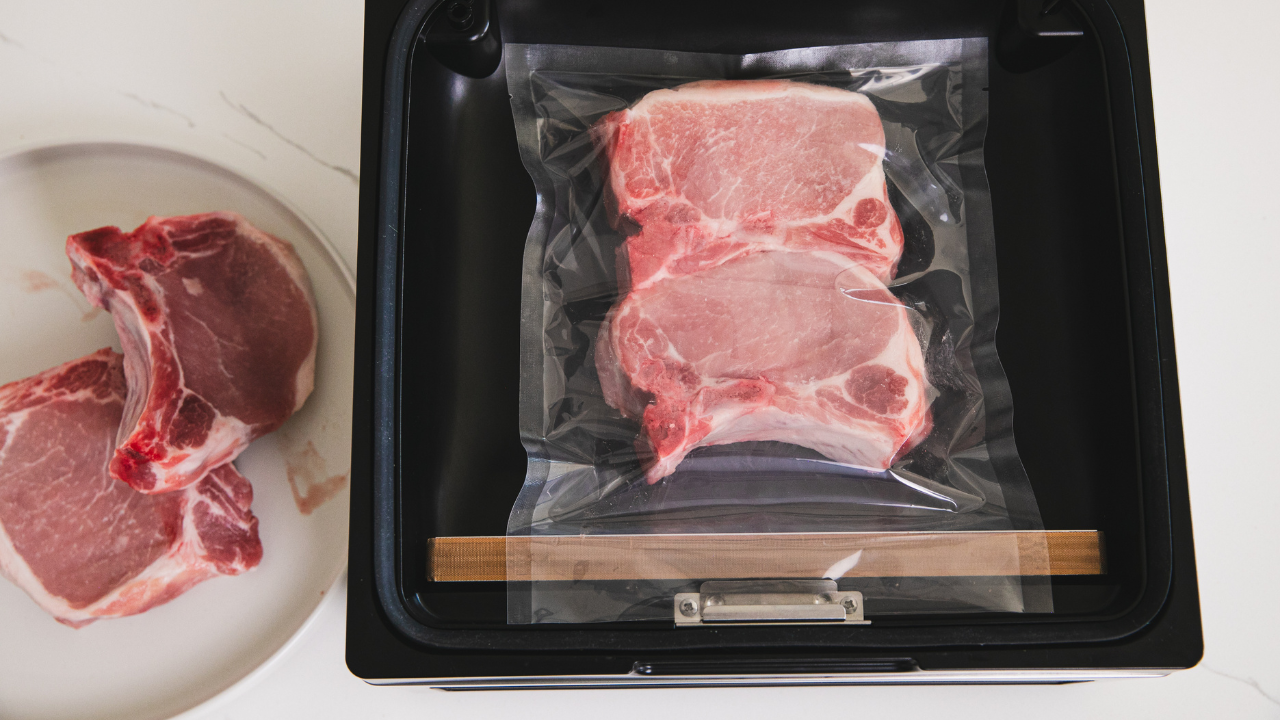
4. Lamb
- Best Cuts: Lamb chops, legs, shanks, and ground lamb.
- Storage Duration: Vacuum-sealed lamb can be frozen for up to 2 years or kept in the refrigerator for up to 2 weeks.
- Tips: Due to its high-fat content, lamb can spoil faster than leaner meats, so it's crucial to vacuum seal it promptly.
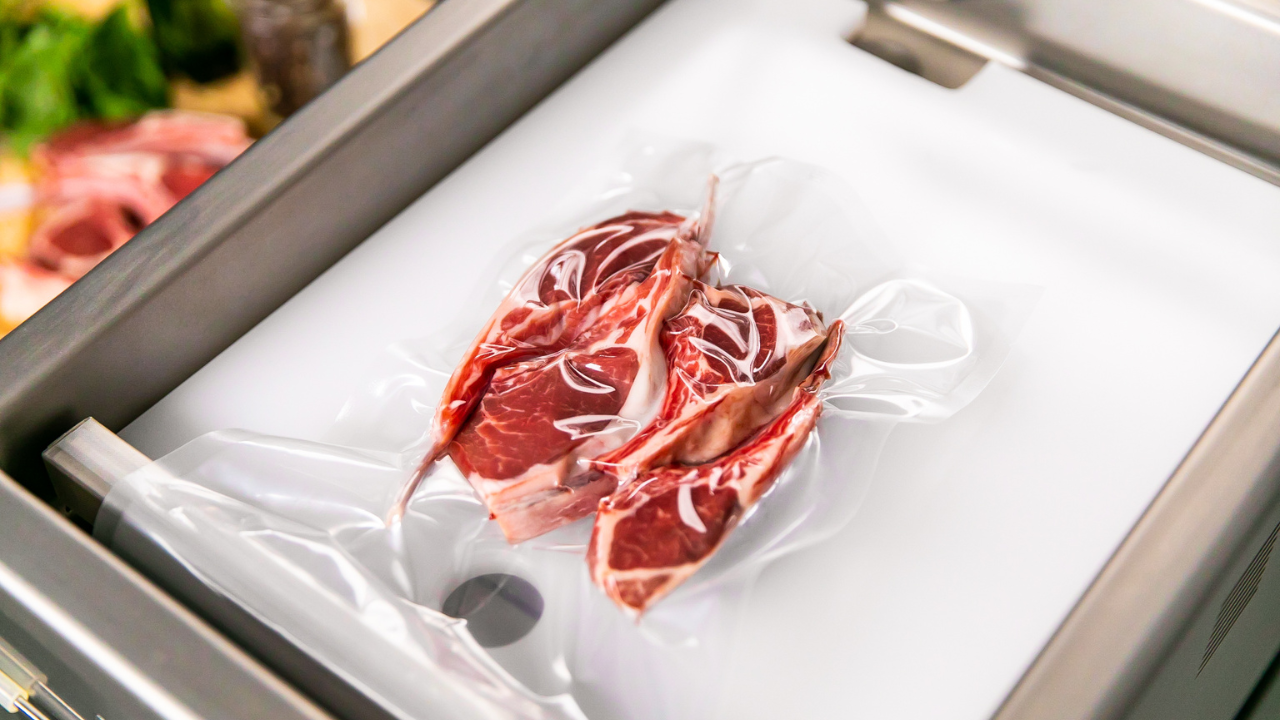
5. Seafood
- Best Cuts: Fish fillets, shrimp, scallops, and lobster tails.
- Storage Duration: Vacuum-sealed seafood can be stored in the freezer for 1-2 years. However, it's best consumed within 6-12 months for optimal flavor. Refrigerated vacuum-sealed seafood can last up to 1 week.
- Tips: Fish fillets should be pre-frozen before vacuum sealing to prevent the vacuum from crushing the delicate flesh.
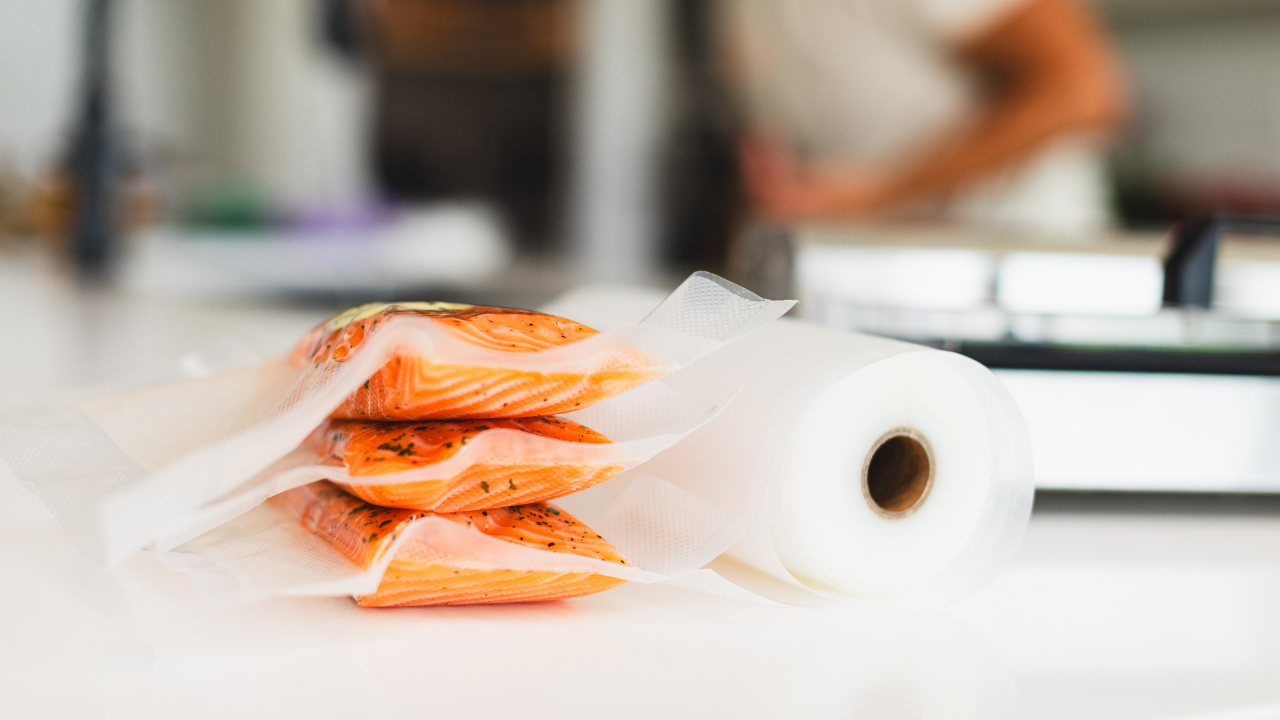
6. Venison
- Best Cuts: Backstrap, tenderloin, steaks, and ground venison.
- Storage Duration: Vacuum-sealed venison can be stored in the freezer for up to 2 years, maintaining its rich, gamey flavor and tender texture. Refrigerated vacuum-sealed venison can last up to 2 weeks.
- Tips: Since venison is a lean meat, it’s prone to drying out, so vacuum sealing is ideal for preserving moisture. If you process your venison yourself, consider vacuum sealing larger cuts first and grinding the rest for later use.
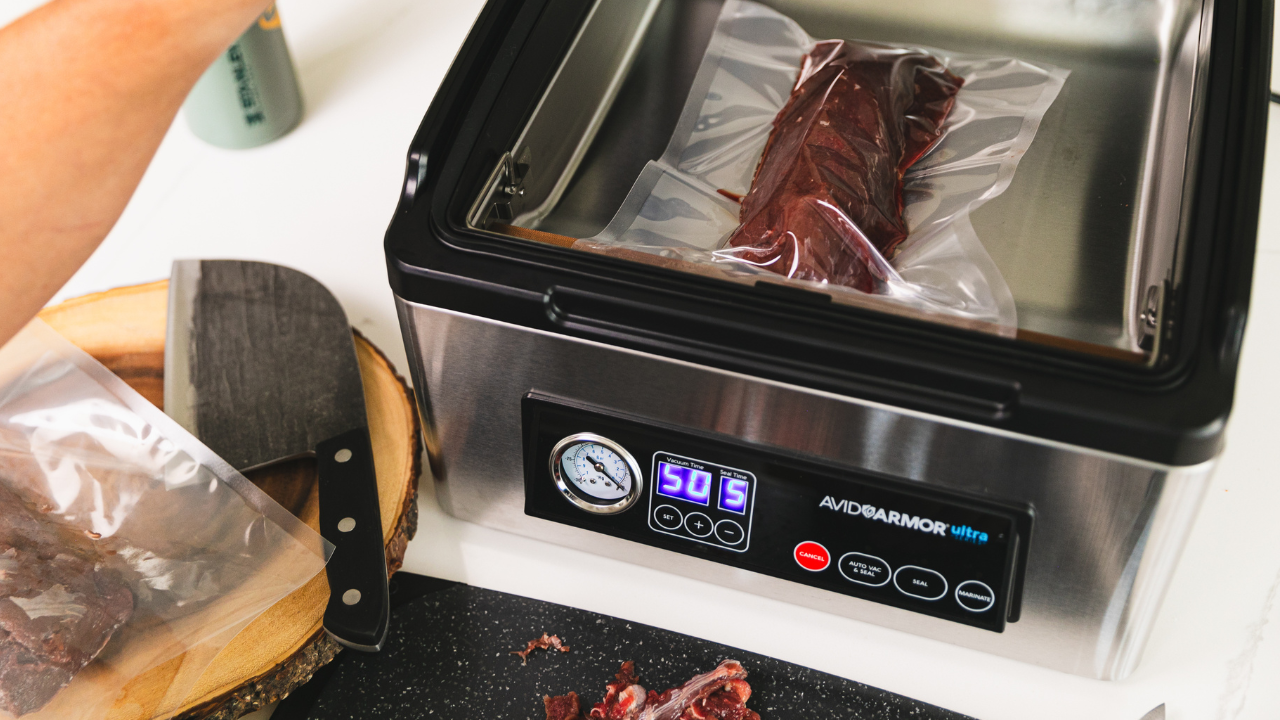
Meats That Shouldn't Be Vacuum Sealed
While vacuum sealing is great for most meats, some should be approached with caution:
Cured Meats
- Meats like salami or pepperoni can still be vacuum sealed, but care should be taken to avoid promoting the growth of anaerobic bacteria, which can thrive in oxygen-free environments. Storing cured meats in the refrigerator or freezing them is safer when they’re vacuum-sealed.
Soft Fish
- Fish like tilapia or flounder, which are particularly delicate, can become mushy when vacuum sealed if not pre-frozen.
Buying Meat in Bulk: Breaking It Down Yourself
Purchasing meat in bulk is a cost-effective way to stock up on your favorites. However, the key to getting the most out of your bulk purchase is how you store it:
- Cutting and Portioning: When you buy meat in bulk, you can break it down into meal-sized portions before vacuum sealing. This makes it easier to thaw only what you need and reduces waste.
- Packaging:
- Grocery Store Packaging: Meat in grocery store packaging is typically not airtight, meaning it’s more susceptible to freezer burn and a shorter shelf life.
- Butcher Paper: This is a step up from grocery store packaging, as it offers better protection against freezer burn. However, it's still not as airtight as vacuum sealing.
- Plastic Bags: While these can be convenient, they still allow air to seep in, leading to freezer burn over time.
- Vacuum Sealing: This is the gold standard for long-term storage. It ensures that your meat is protected from air, moisture, and freezer burn, keeping it fresh for much longer.
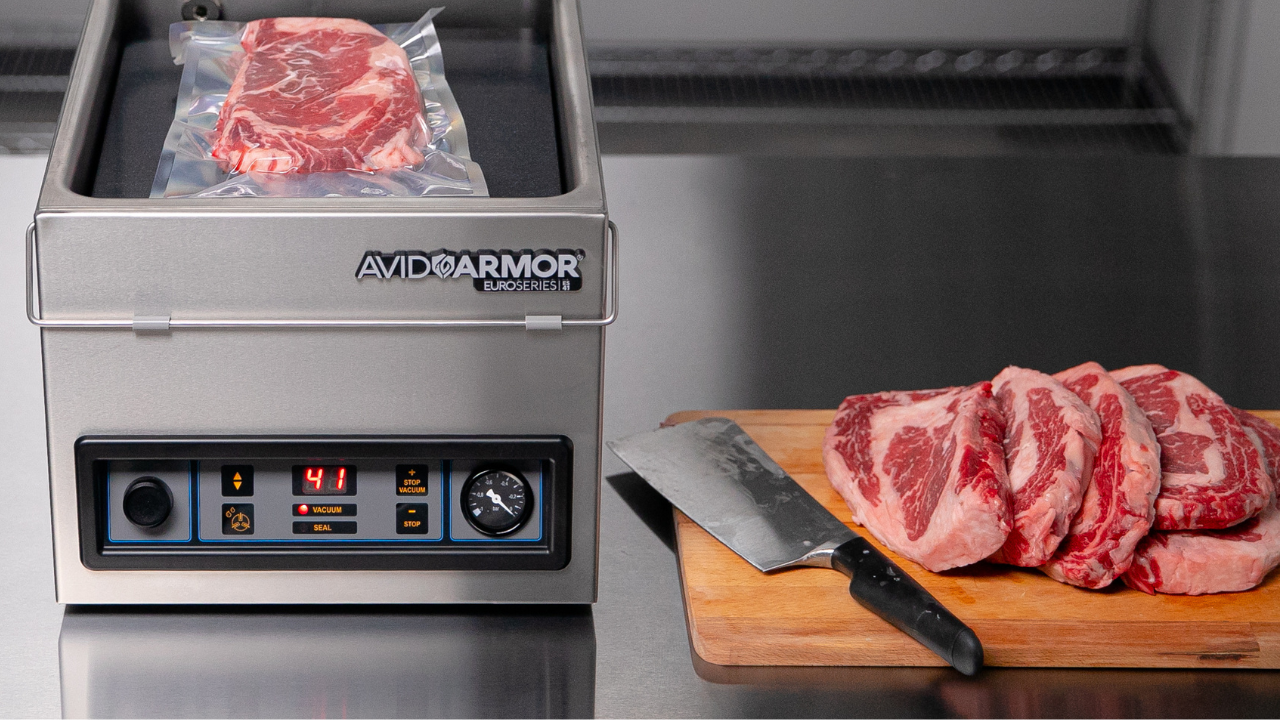
Storing Meat: Grocery Store Packaging vs. Butcher Paper vs. Plastic Bags vs. Vacuum Sealing
- Grocery Store Packaging: Suitable for short-term storage (1-2 days in the fridge). Not ideal for freezing beyond a month.
- Butcher Paper: A good option for freezing meat for a few months but still allows air and moisture in over time.
- Plastic Bags: Better for short-term freezing (up to 3 months) but still prone to freezer burn.
- Vacuum Sealing: Best for long-term storage, offering protection for up to 3 years in the freezer and maintaining quality for extended periods.
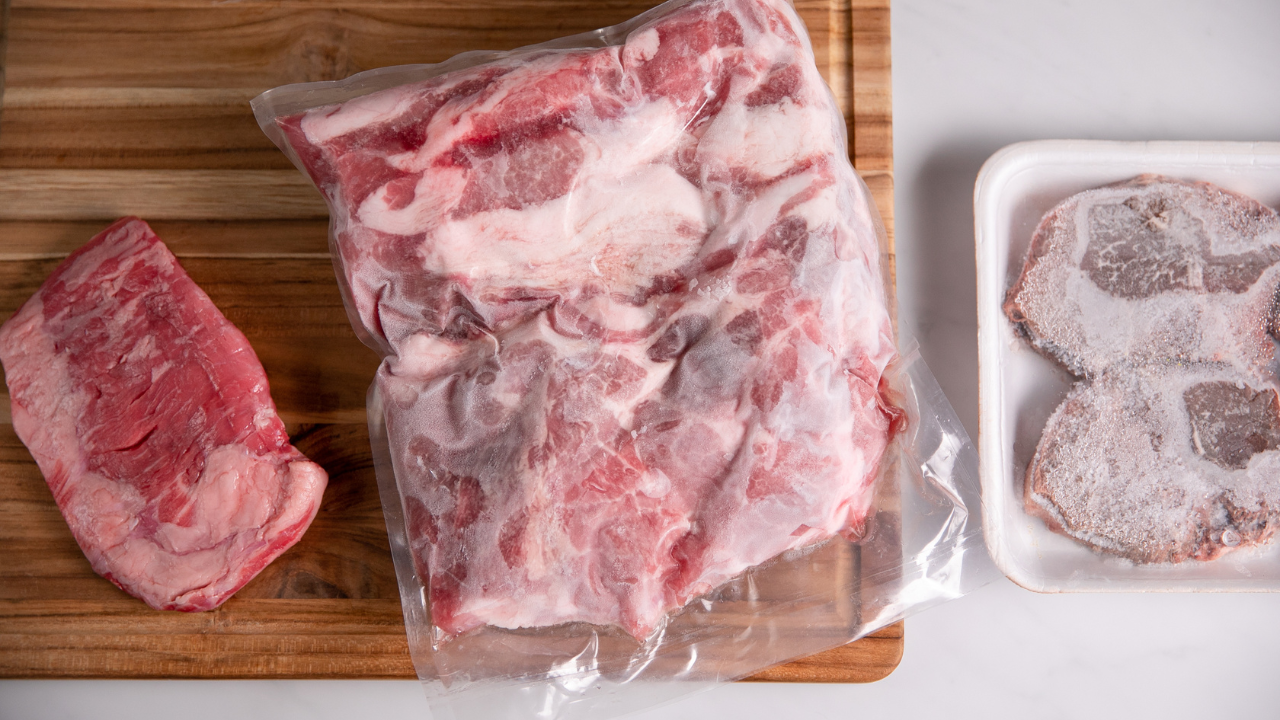
Final Thoughts
Vacuum sealing is an excellent method for preserving the quality, flavor, and nutritional value of your meat, whether you’re storing it in the refrigerator or freezer. By following these best practices and tips, you can ensure your meat stays fresh, delicious, and ready for whenever you need it. Plus, with the ability to buy in bulk and break down your portions, you'll save money and reduce waste, making vacuum sealing an essential tool for any meat lover.
Check out Avid Armor's line of vacuum sealers to find the perfect solution for all your meat preservation needs and start saving time, money, and flavor today!

